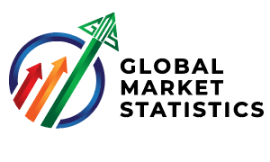Liver cancer is one of the fastest-growing cancer types worldwide, presenting significant health challenges. According to recent estimates, the liver cancer screening market reached USD 11.99 billion in 2023 and is projected to grow at a CAGR of 7.20%, reaching USD 22.41 billion by 2032. This surge in market value highlights the urgent need for effective screening methods to improve early detection and treatment outcomes. In this blog, we will explore the current trends driving growth in the liver cancer screening market, identify key players, and discuss the challenges and opportunities facing this vital sector.
The Importance of Liver Cancer Screening
Screening for liver cancer is essential for early diagnosis, which can significantly improve patient survival rates. Liver cancer is often diagnosed at advanced stages due to the lack of noticeable symptoms in its early phases. Regular screenings allow for the detection of liver tumors when they are small and more treatable. With increasing awareness of liver cancer risks, effective screening methods are becoming crucial.
Current Trends Shaping the Market
- Technological Advancements
- Artificial Intelligence (AI): The integration of AI into diagnostic processes is revolutionizing liver cancer screening. AI algorithms can analyze imaging data, such as ultrasounds, CT scans, and MRIs, with high accuracy. These technologies help radiologists identify patterns that may indicate liver tumors, reducing the chances of misdiagnosis.
- Liquid Biopsy: Non-invasive blood tests, known as liquid biopsies, are emerging as valuable tools in liver cancer screening. These tests measure specific biomarkers, such as alpha-fetoprotein (AFP) levels, in the blood. Liquid biopsies can identify at-risk individuals without the need for invasive procedures like biopsies, making them a safer option.
- Enhanced Imaging Techniques: Innovations in imaging technologies, including elastography and contrast-enhanced ultrasound, allow for better assessment of liver stiffness and blood flow. These advancements enhance the ability to detect liver cancer at earlier stages.
- Growing Awareness and Education
- Public Health Campaigns: Increased awareness about liver health and cancer risks is driving more individuals to seek screenings. Organizations such as the American Liver Foundation promote liver cancer awareness through public health campaigns, informing people about risk factors and the importance of regular check-ups.
- Patient Education Initiatives: Healthcare providers are actively engaging in patient education programs to inform individuals about the signs and symptoms of liver cancer. By raising awareness, these initiatives aim to encourage people at risk to undergo regular screenings.
- Government Initiatives and Funding
- Research Funding: Governments are prioritizing funding for liver cancer research and screening programs. Investments in innovative technologies aim to improve diagnostic capabilities and increase access to care for at-risk populations.
- Policy Development: Policymakers are developing guidelines that recommend regular screenings for high-risk individuals, such as those with hepatitis B or C, cirrhosis, or a family history of liver cancer. These policies are essential for standardizing care and improving outcomes.
- Personalized Screening Approaches
- Tailored Screening Protocols: Personalized medicine is becoming a significant trend in liver cancer screening. Healthcare providers are customizing screening methods based on individual risk profiles, such as genetic factors and lifestyle choices. This approach ensures that high-risk individuals receive appropriate and timely screenings.
Competitive Landscape
The liver cancer screening market is characterized by the presence of several key players who are driving innovation and growth:
- F. Hoffmann-La Roche Ltd: Roche is a global leader in diagnostics and pharmaceuticals, focusing on early disease detection. Their innovative diagnostic tests improve early detection rates for liver cancer, contributing to better patient outcomes.
- Abbott Laboratories: Abbott is a major player in healthcare, providing advanced diagnostics and screening solutions. Their innovative tests measure liver enzymes and tumor markers, enhancing liver cancer screening strategies.
- Siemens Healthineers AG: Siemens Healthineers is pioneering advancements in medical imaging and integrating AI and big data analytics into their diagnostic equipment. This focus allows for more accurate and timely decisions regarding liver cancer screening.
- Koninklijke Philips N.V.: Philips is known for its wide range of diagnostic imaging technologies. Their advanced ultrasound and MRI systems improve the accuracy of liver cancer detection, supporting better patient care.
- Becton, Dickinson and Company: BD specializes in medical devices and diagnostics, contributing to the liver cancer screening market with innovative solutions. Their analytics services provide healthcare providers with valuable insights to optimize screening processes.
Challenges Facing the Market
Despite the promising growth prospects, the liver cancer screening market faces several challenges:
- Cost Barriers: High costs associated with screening and diagnostic procedures can limit access for many individuals, especially in low-income regions. Developing cost-effective screening solutions is essential to broaden access.
- Access to Care: Disparities in healthcare access, particularly in rural or underserved areas, hinder early detection efforts. Many individuals at high risk for liver cancer may not have regular access to screenings, emphasizing the need for outreach programs.
- Variability in Screening Guidelines: Differences in screening recommendations across regions can lead to inconsistencies in patient care. Establishing standardized guidelines would help ensure that all patients receive timely and appropriate screenings.
- False Positives and Negatives: The inherent limitations of current screening tests can result in false positives or negatives, complicating the diagnostic process. Continuous research is needed to improve the specificity and sensitivity of these tests.
Future Opportunities
The liver cancer screening market presents numerous opportunities for growth and innovation:
- Emerging Biomarkers: Research into new biomarkers for liver cancer detection could revolutionize screening methodologies. The identification of reliable biomarkers would facilitate earlier and more accurate diagnoses, improving patient outcomes.
- Telehealth Services: The rise of telemedicine is making it easier for patients to access screening and follow-up consultations, particularly in remote areas. Virtual consultations enhance patient engagement and encourage timely screenings.
- Global Collaboration: Partnerships between governments, healthcare organizations, and private companies can foster research and development efforts. Collaboration can enhance screening technologies and improve access to care.




